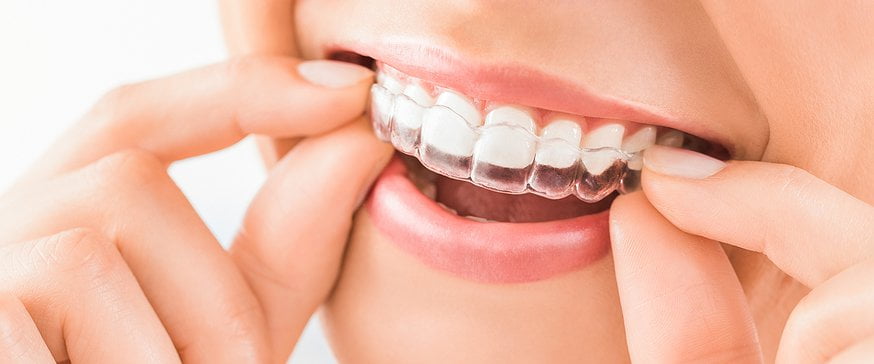9 Simple Techniques For Johnson Orthodontics
9 Simple Techniques For Johnson Orthodontics
Blog Article
The smart Trick of Johnson Orthodontics That Nobody is Talking About
Table of ContentsJohnson Orthodontics - Truths8 Simple Techniques For Johnson OrthodonticsThe Ultimate Guide To Johnson OrthodonticsThe Ultimate Guide To Johnson OrthodonticsThe Buzz on Johnson OrthodonticsHow Johnson Orthodontics can Save You Time, Stress, and Money.The Best Strategy To Use For Johnson Orthodontics
An orthodontist is a dental expert educated to diagnose, protect against, and treat teeth and jaw abnormalities. They correct existing problems and are trained to identify problems that might create in the future. Orthodontists collaborate with people of every ages, from kids to grownups. Individuals commonly link a perfect smile with health., however not all dental experts are orthodontists. They concentrate on two areas: How to appropriately and securely move teeth Exactly how to appropriately assist development in the teeth, jaw, and faceOnce an orthodontist has completed training, they have the choice to become board licensed.
Little Known Questions About Johnson Orthodontics.
Misalignment, or malocclusion, is the most typical reason individuals see an orthodontist. It is hereditary and is the result of dimension differences between the upper and reduced jaw or in between the jaw and teeth. Malocclusion brings about tooth congestion, an askew jaw, or irregular bite patterns. Malocclusion is usually treated with: Your orthodontist connects steel, ceramic, or plastic square bonds to your teeth.
Some people require a headgear to assist move teeth into line with stress from outside the mouth. A retainer is a personalized device that maintains your teeth in place.

They're usually made use of on youngsters. They can create added area in the mouth without needing to pull teeth. If you have a major underbite or overbite, you may need orthognathic surgical treatment (likewise called orthodontic surgery) to lengthen or reduce your jaw. Orthodontists utilize cables, surgical screws, or plates to sustain your jaw bone.
Some Known Questions About Johnson Orthodontics.
Throughout your very first orthodontic examination, you'll likely have: An oral examPhotos taken of your face and smileDental X-raysPanoramic (360 degree) X-rays of your face and headImpressions to create molds of your teethThese tests will certainly help your orthodontist know how to proceed with your treatment. An orthodontist is a dental practitioner who's had training to treat your teeth and jaw.
An orthodontist is focused on your bite, so something like a broken tooth would certainly be managed by a dental practitioner. Orthodontists are focused on your bite, or the way your teeth fit with each other, and the straightness of your teeth.
Ever questioned just how stars always seem to have completely aligned teeth? Orthodontists are dental professionals that concentrate on correcting irregularities in the teeth and jaws.
Johnson Orthodontics for Beginners

Clear aligners, like Invisalign, are a preferred alternative for people seeking a much more discreet therapy choice. These removable trays are customized to gradually shift the teeth's setting (http://www.askmap.net/location/7173047/united-states/johnson-orthodontics). Headgear might be utilized combined with dental braces or aligners to apply added targeted forces, especially for dealing with jaw discrepancies. In instances of narrow jaws, palatal expanders can be utilized to produce space for correct tooth placement.
Indicators on Johnson Orthodontics You Need To Know
While attaining a beautiful smile is an all-natural perk of orthodontic therapy, the advantages extend far past visual appeals. Correctly lined up teeth and a well balanced bite add to improved oral health and wellness in numerous ways: Straight teeth are easier to cleanse, which aids protect against cavities and gum illness. An appropriate bite permits effective chewing, which aids in food digestion and total gut health and wellness.
What is the difference in between a dental practitioner and an orthodontist? All dental practitioners, consisting of orthodontists, treat the teeth, periodontals, jaw and see here nerves.
You can assume of both medical professionals that deal with periodontal and teeth issues. The primary difference is that ending up being an orthodontist calls for a particular specialty in dealing with the misalignment of the teeth and jaw.
The 30-Second Trick For Johnson Orthodontics
An orthodontist is a dentist that has undertaken training to specialize in the diagnosis, avoidance and therapy of irregularities in the jaw and teeth. Their training includes remedying these existing problems (mentor orthodontics). They can additionally recognize prospective problems in teeth alignment that might develop when conditions are left unattended. Orthodontists can help people of every ages.
This consists of all the required education to become a basic dental practitioner. According to the American Trainee Dental Organization (ASDA), it means you will need to have either a Doctor of Medicine in Dentistry (DMD) or a Doctor of Oral Surgery (DDS). To put it simply, orthodontists require to complete oral school and afterwards get an orthodontics specialized education and learning.
The Buzz on Johnson Orthodontics

When you have a healthy bite, you can speak, chew and eat properly, hence boosting your quality of life. Apart from the orthodontist, we commonly see assistants dealing with these oral professionals in their facilities. So, what is an orthodontist aide called? They're suitably called orthodontic aides. They are specialized aides, and are trained to deal with dental gear and provide preventative dental healthcare.
Report this page